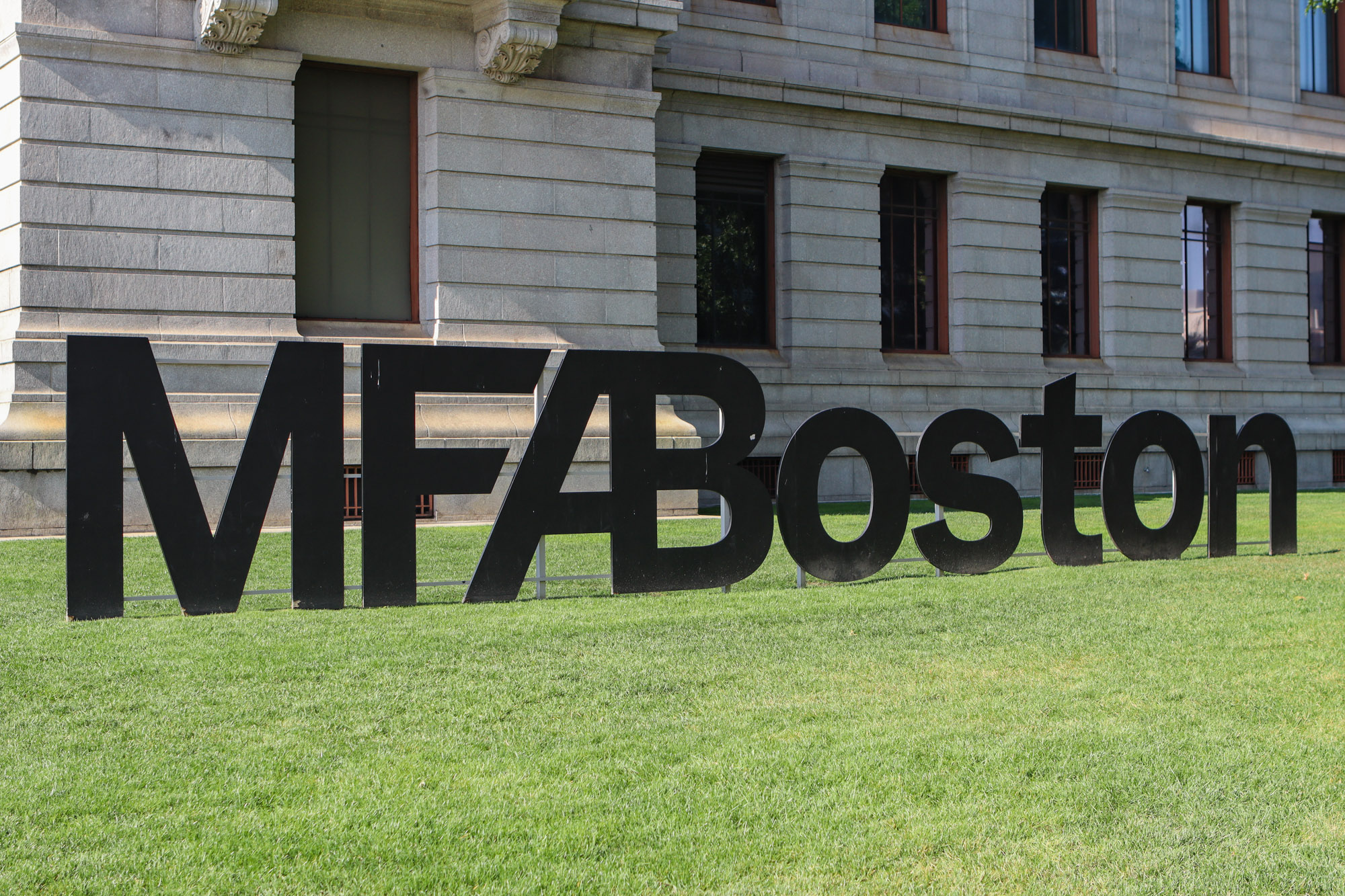The Museum of Fine Arts in Boston recently returned a 2,500-year-old necklace back to its origin country of Turkey, an ordeal that brings the issue of art museum ethics to Boston.
On Sept. 4, the MFA announced in a press release that the repatriation agreement came after new information suggested that the necklace — a gold molding with small, pomegranate-shaped carnelian beads dangling — was looted from its home country.
Victoria Reed, the Sadler Senior Curator for Provenance at the MFA, said the piece dates back to between 550 and 450 B.C. and belongs to a family of similar artifacts, all discovered at an archaeological site in Turkey called Bin Tepe. In 1976, archaeologists investigated Bin Tepe following reports of looting. The matching elements were recovered and preserved in a local archaeological museum — the others were missing.

“In this case, it was a scholar who gave us a heads up to let us know that there were elements in the Archeological Museum in Manisa, Turkey that were identical to the ones in the MFA necklace,” Reed said.
Her job is to comb through internal files and look at scholarly research for any information that suggests the necklace had, in fact, been looted.
Reed said she reached out to the dealer who had sold the necklace to the MFA, and he was unable to provide more details about the purchase.
“They didn’t have a record, I guess, of where this had come from,” Reed said.
Once a consensus forms that there is a need for deaccession, the process of removing a piece from a museum collection. Once the MFA Board of Trustees approved deaccession, conversations with Turkish authorities began, ultimately leading to the piece’s return.
Thorough research into provenance is not uncommon at the MFA. Still, this research brings up the issue of when repatriation is necessary, especially in a city with such a diverse population.
For Boston University senior Alara Balcisoy, a Turkish student interested in art history and Turkey’s repatriation efforts, the implications surrounding this necklace return are greatly intriguing.
“For Turkish people, if you are not a student in Boston or some special circumstance like that, it is very unlikely for you to go to the MFA and see an artifact that was discovered in Turkey,” Balcisoy said. “It disconnects and alienates people from their heritage.”
Balcisoy wrote an article for a writing class about “different ways in which people view repatriation,” she said. Her analysis comes as a result of two prominent schools of thought surrounding the cultural heritage of antiquities: nationalism and internationalism.
Nationalism views certain objects as having an identity based on the country where they were created and are currently recognized, according to an article from the J. Paul Getty Trust. Meanwhile, internationalism envisions cultural heritage as something that belongs to all of humanity regardless of modern geographical borders.
Balcisoy said many Western institutions “argue that they are universal places,” but when it really comes down to it, they often favor Western cultures over others, making them inherently nationalistic.
“It’s sad, but I’m not surprised that this happened,” she said of the necklace being stolen from Turkey.
Now that the necklace is being returned to Turkey for display, Balcisoy said she feels incentivized to go see the necklace “in its original context.”
“I think of all the other objects that have been looted … and most of them don’t go to prestigious institutions,” Balcisoy said. “They go into private collections, and that makes it even harder to track those down unless they turn up at the museum, and even if they do, not all museums are cooperative, as the MFA is.”
While the Turkish necklace return comes as a recent example of repatriation from a local museum, the issue of looting and moving antiquities has been around “as long as humans have been interested in both art and objects,” said Robert Murowchick, director of Archaeology Undergraduate Studies at BU.
As a result, the issues of provenance and repatriation in museums spans far beyond one singular case.
Provenance studies at the MFA began in relation to artwork seized by Nazis during World War II, Reed said. As more information on looting and unethical art dealing comes to the forefront of research, she said it has become clear that “the work never ends.”
This topic, while large in scale, is one that is increasingly being taken seriously in major museums, Murowchick said, and solutions are not out of reach. He suggested that museums could host temporary exhibitions, which would bring attention to the importance of the art but also the fact that it is not owned by the museum itself. At a smaller scale, people can go to their local museums and express their dissatisfaction at looted or unethically sourced pieces.
“No museum board wants to have a museum that keeps showing stuff that the public doesn’t want to see,” Murowchick said. “There are so many interesting ways you can use your money and show your love for these cultures in a productive way rather than in a destructive way.”



























































































































